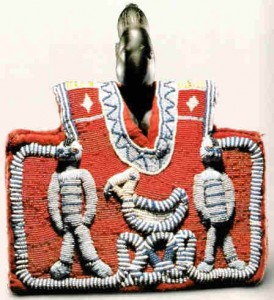It was mentioned almost in passing in our last Wednesday class by one of the American students that whenever I mentioned Yorubaland, as I always inevitably did while telling them about that part of Nigeria (and Benin Republic), it always sounded to their ears and imagination as some sort of a fairytale kingdom. “Like Disneyland?” I asked, and they all shouted, “Yeah”.
Seriously.
 “Do you still have kings there?” Another one asked.
“Do you still have kings there?” Another one asked.
“Yea,” I replied, but their function is mostly ceremonial, like that of the British monarchy.”
“Do they have rituals of coming-of-age, like public circumcision dance and festivals, like we’ve seen in some movies?” A different student asked.
“Well,” I replied, thinking, “there are some cultures in Africa that has those festivals for boys when they get to a particular age. But not the Yorubas. They cut their male children’s foreskins immediately after birth, and don’t wait at all.”
They seemed to be very impressed, but I was sure that they still retained some exotic ideas about the famed “Yorubaland” or “Yoruba Kingdom” that reminded them either of a Disney Movie or an animated flick, so I dimmed the lights in class, put on the projector, and logged onto YouTube to look at some Yoruba movies and clips. Luckily, there was Baba Wande and a few other actors there who I could point to as archetypes of Yoruba men and women in dressing and mannerism. I typed in “Lagos” and one of the first results there was a documentary about the Megacity project in which Wole Soyinka and a few others were interviewed for the camera. In the end, I felt I’d given a balanced view of life in Western Nigeria. They saw what a typical Yoruba house and street look like. They saw cars and people going about their daily lives, and I wondered if I’m able to help them reconcile that general city look with the many eccentricities that some of our cultural practices present as evidence of another kind of social life that is not seen on the streets.
For future classes, I have promised them a session of reading short stories of the tortoise from Nigeria. Luckily, I have brought along with me from Nigeria a book of many folk stories that captured our imagination as kids growing up in places in Yorubaland. And from the twinkle in their eyes, I see excitement, and I’m equally thrilled by the prospects of being the storyteller in a class of young students in the Western hemisphere, travelling back into a magical kingdom of animals, and folk wisdom from the Yoruba elders. This too will be an experience of a lifetime.
1
kunle jimoh at http://YourWebsite
This is a positive way of presenting the real Yoruba story and experience to people who are so far away from it and who may have had a totally different view.
Yorubas are proud of their culture and indeed their very rich language. For me, i am an extremely proud yoruba man!
Posted at September 25, 2009 on 6:20am.
2
Kola Tubosun at http://www.ktravula.com
Nice!
Posted at November 3, 2009 on 11:11pm.
3
buki adeyemo at http://YourWebsite
That is balanced teaching, as far as i can tell, cos the heritage is a far cry from the reality. Good job.
Posted at September 25, 2009 on 11:31am.
4
Kola Tubosun at http://www.ktravula.com
Thanks Buki.
Posted at November 3, 2009 on 11:11pm.